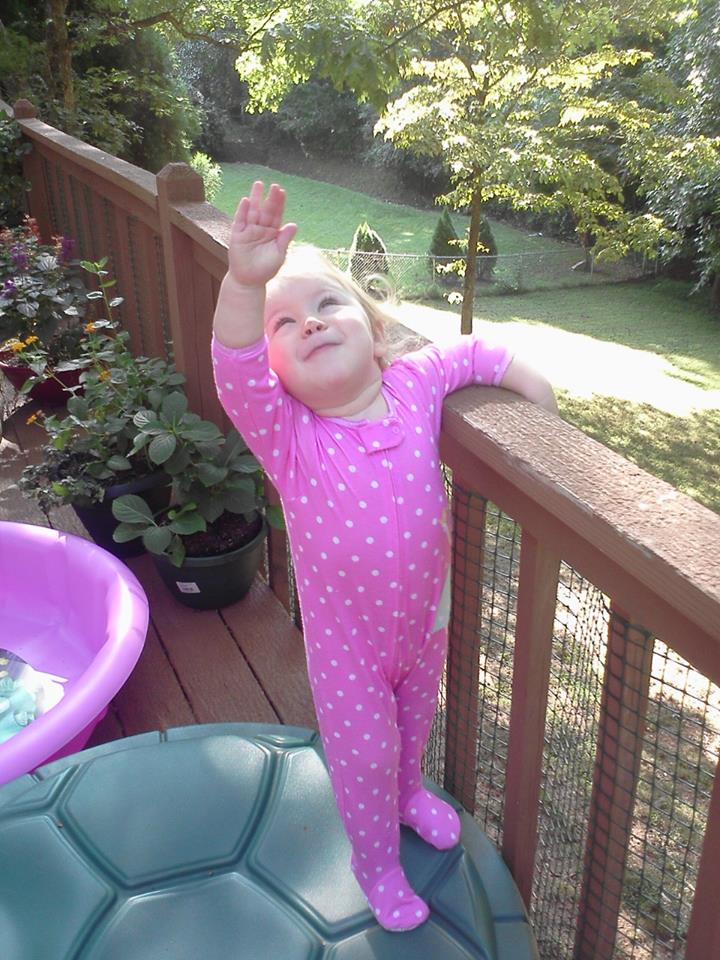
"Work it out" or some variation of this phrase is what Robin Harding, a mother of three in Devon, England, recalls telling her kids. You want your youngster to develop his own problem-solving abilities. Once you've heard the complaint, assessed the danger, and helped your child come up with potential solutions, send him back into the fray. The idea is to reassure her that she can handle things and then empower her with strategies to do it. Don't do that," or "I don't like it when you do that. Have her practice asserting herself verbally by saying, "Stop it. Teach her to express her feelings to her friends and siblings, too.

If a squabble over a toy has sent her running to you, ask if she can share, take turns, or play by herself for a while. Next, ask questions to help her explore her motivation for telling on someone else: "What's happening here? What's the problem? How can we solve it?" Then figure out an alternative strategy. Tell her, "I can help you more if you calm down and tell me what happened."

When she runs into a difficult situation, your youngster needs guidance on what to do instead of tattling. Spending some one-on-one time together can also help.Įxplore alternatives together. If he consistently tries to get your attention this way, talk to him about positive ways to get your attention instead. If what he wants is your attention, tell him you'll be happy to listen to anything he wants to tell you about himself – but not about his friend or sibling, unless they're in danger. Chances are, he'll decide that the time and effort just isn't worth it. For example, when he comes running to you with news of his sibling's dastardly (but not dangerous) deed, you might tell him to draw a picture and leave it on the table so you can look at it later. Giving your child some work to do when he tattles puts the burden back on his shoulders. If you take the tattler's side, not only do you reinforce the behavior by helping her achieve what she wants (positive attention for her and negative attention for the other child), you also risk disciplining the other child unfairly if your youngster is exaggerating her playmate's infraction, which kids often do.īut if you stay out of it, your child soon learns that some battles are meant for her to handle and that she can be proud of herself when she resolves a problem on her own. In these cases, punishing the other child only rewards tattling. Of course, there are lots of situations where safety isn't at stake. That will help keep him safe." This way you avoid the sibling rivalry trap, focus on taking care of the child in need, and establish trust through communication.ĭon't make the payoff. When he comes to you in order to protect someone, praise him: "Thank you for looking out for your brother. (Is jumping on the bed dangerous, for instance?) Let him know that it's fine to ask you if he's not sure about a situation. You might tell your youngster that it's okay to alert you when someone does something dangerous, but he may still have trouble differentiating dangerous from annoying. "It's hard for kids this age to make independent judgments about what's tattle-worthy and what isn't," says Wyckoff. It helps to give him an idea of the sort of things you'd like him to tell you about.Īs an adult, you know that "Dad, Sarah's playing with my cars" is a very different situation from "Dad, Sarah's playing in that person's car." But young kids can't always tell the difference. You don't want your child running to you with every little complaint, but he also needs to feel confident that he can ask for help when necessary. Before you decide that your child is turning into a whiny tattletale, take stock of the situation. What to do about tattlingĬheck out the situation. And older children who are accustomed to watching out for younger ones may be more inclined to notice and report their behavior. Some kids tattle because they haven't developed the emotional and social skills necessary to solve problems on their own.

It can also alert you to a dangerous situation that needs your immediate attention. Tattling also has a positive side: It can demonstrate your child's desire to show you that she understands rules and knows right from wrong.


 0 kommentar(er)
0 kommentar(er)
